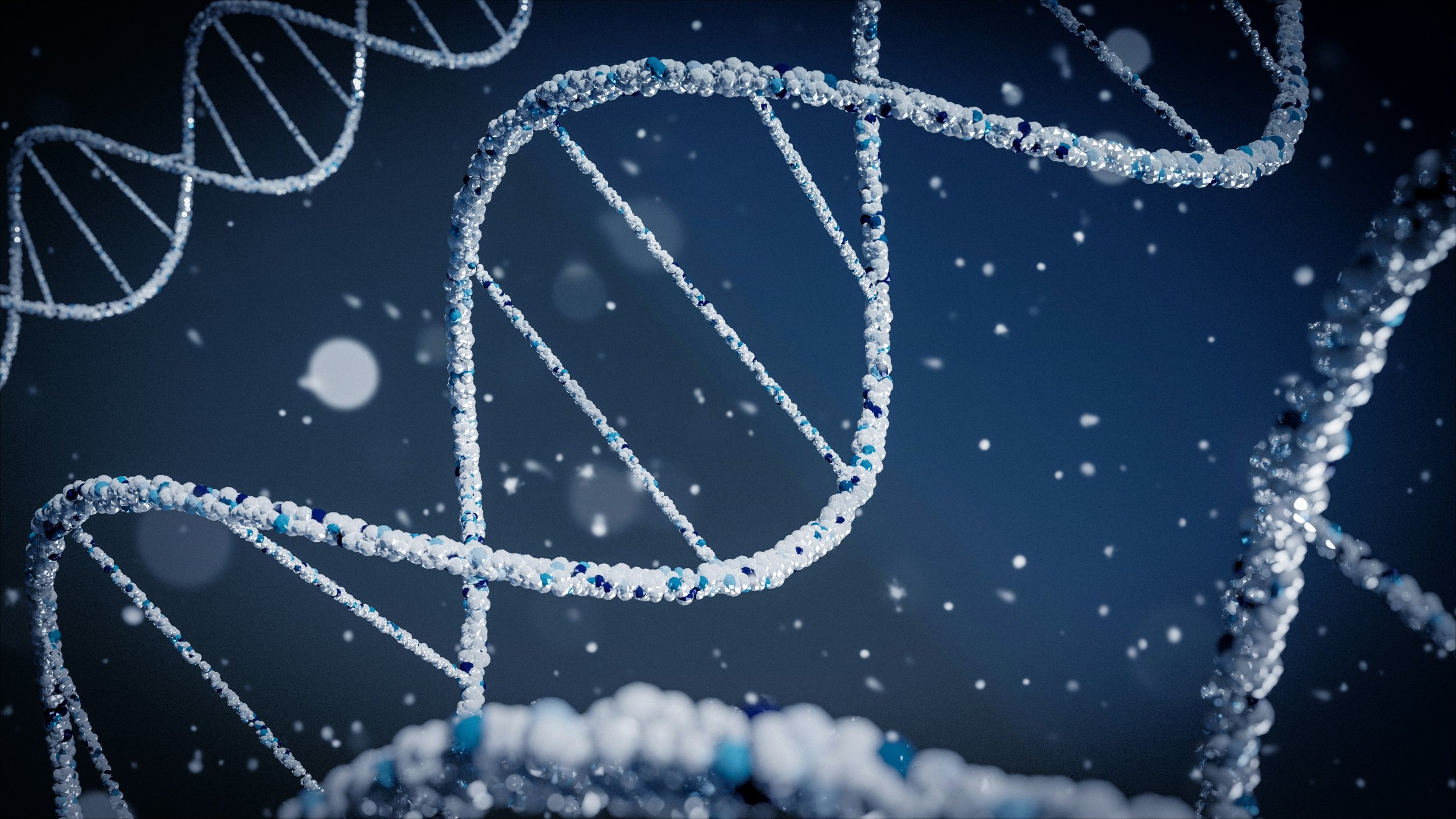
Genetic Genealogy and Law Enforcement in West Virginia
This Science and Technology Note expands upon a previous Note on DNA use in law enforcement and focuses on law enforcement’s use of consumer-based genealogical services to identify persons of interest.
Updated October 1, 2025
Research Highlights
DNA technology is a powerful tool that law enforcement can use to assist investigations.
West Virginia has a backlog of thousands of unsolved homicide cases and unidentified persons.
Recently, law enforcement has been able to identify persons of interest by searching through databases of DNA profiles from consumer-based genealogy services.
West Virginia has not passed legislation surrounding the use of these services by law enforcement.
Law enforcement has used DNA to assist in investigations since the 1990s, including in West Virginia. Recently, law enforcement has used genetic genealogy companies to help identify suspects or unidentified persons by finding potential family members. This Science and Technology Note expands upon a previous Note on DNA use in law enforcement and focuses on law enforcement’s use of consumer-based genealogical services to identify persons of interest.
DNA and Single Nucleotide Polymorphisms
All humans are 99.9% identical in our genetic makeup; the remaining 0.1% dissimilarity is what makes each of us unique. One feature that makes up the dissimilarities between people are single nucleotide polymorphisms (SNPs). SNPs are a change in a single one of the building blocks (A, C, T, and G) in our DNA compared to another person’s DNA sequence, like our parents. SNPs can be likened to a printer changing one or two letters while printing a copy of a book. Humans have millions of SNPs. They can be found anywhere throughout the genome and generally do not have negative effects. Customers submit a saliva sample to a direct-to-consumer (DTC) DNA testing genealogy service, which sequence SNPs within the genome to generate a SNP profile. These are compared to other profiles in their database to find family members, determine ancestry, and determine potential risk of certain heritable diseases. More recently, law enforcement has been able to run DNA from crime scenes and missing persons through DTC DNA testing databases in order to help their investigations.
Example of a SNP analysis of a child and two parents and two unrelated people. The child inherited a SNP from both their mom (SNP 1) and dad (SNP 3) and also as a new SNP at SNP 4, leading to a unique profile. The two unrelated people have unique SNP patterns.
Cold Cases and Unidentified Persons in West Virginia
West Virginia currently has over 2,800 unsolved homicide cases and 30 unidentified persons cases. While law enforcement uses all available tools at their disposal to try to solve these cases, conventional methods such as conducting interviews and examining evidence are sometimes not sufficient. DNA technology, including centralized DNA databases have aided investigations in the past, including investigations in West Virginia. Matching a person of interest’s DNA to a sample within the national database, however, is only successful if the match is already in the database. If the match is not already in the database, law enforcement must wait until a match is added, which could take decades. To circumvent this, some law enforcement agencies have successfully started utilizing investigative genetic genealogy (IGG).
Investigative Genetic Genealogy
IGG is a process by which law enforcement utilizes DTC DNA databases to help identify a person. The two most popular companies performing DNA testing are Ancestry and 23andMe, which have 28 million and 15 million individual DNA profiles, respectively. Each profile is made up of about 650,000 SNPs. When law enforcement uses IGG, they use a sample from the person they are seeking to identify to generate a SNP profile to compare with users of a DTC DNA database. Although this process does not necessarily lead to a perfect match, it can find users that are genetically related. Law enforcement uses this information to predict relationships, and based on how similar two sets of DNA are, build a family tree to narrow in on their person of interest. Upon finding a potential match, more stringent DNA testing is performed to confirm or rule out the match.
| Relationship to Person of Interest | Estimated percent of shared DNA |
|---|---|
| Parent/Child | 50% |
| Sibling | 50% |
| Grandparent/Grandchild | 25% |
| Aunt/Uncle/Niece/Nephew | 25% |
| Great grandparent/Great grandchild | 12.5% |
| 1st Cousin | 12.5% |
| 2nd Cousin | 3.125% |
| 3rd Cousin | 0.781% |
| 4th Cousin | 0.195% |
Table showing how much DNA is expected to be shared between a person of interest and another member of their family. Even distant family members have some shared DNA, although up to 50% of 4th cousins are genetically distant enough that they will not appear as a match. The percent similarity can be used to estimate relationships and used to build a family tree.
Based on data from the International Society of Genetic Genealogy.
Law enforcement has successfully used IGG to identify persons of interest. In 2018, Joseph James Deangelo was identified as the Golden State Killer from the 1970s and 1980s in California. Since then, it has been used to identify at least 150 other suspects, including the perpetrator of a 10 year old cold case in Utah. However because there is no centralized database to track IGG use, exact estimates of its use are difficult. The vast majority of the public agrees that law enforcement should be allowed to search DTC DNA databases for suspects of violent crimes, while a little less than half believe it should be used for suspects of non-violent crimes. Many proponents say this tool should be used as it helps to catch perpetrators and helps maintain the victim’s right to justice. Opponents, however, argue that IGG is a fishing expedition and voice ethical concerns including how DTC DNA technology is being used differently from how it was intended by the companies involved. Critics also point to privacy concerns, which is something that West Virginia could address legislatively. Indeed, HB 5110 was introduced to the West Virginia Legislature in 2024; however, it did not pass out of committee. HB 5110 would have required DTC DNA genealogy companies to post privacy statements and required law enforcement to obtain a court order to access these databases.
DTC DNA genealogy companies have had mixed responses to law enforcement’s use of IGG. Ancestry and 23andMe both have guides for law enforcement that explicitly state they will not release any information without a valid subpoena or warrant. They further note that they will immediately notify any user whose data was accessed unless the court order prevents them from doing so. 23andMe has also publicly stated they have not released any information to law enforcement to date. Other companies, including GEDmatch Pro, FamilyTreeDNA, and DNASolves allow verified law enforcement officials to create accounts and search their databases without a subpoena or warrant.
Remains of unidentified persons have also been able to be identified through use of IGG. In West Virginia, a partnership between the Chief Medical Examiner, West Virginia State Police, West Virginia Fusion Center, and Marshall University established the West Virginia Forensics Genealogy Commission in 2024 with the goal to identify unidentified persons. The commission uses IGG and was able to make 2 positive identifications within the first 3 months of their establishment. The vast majority of the public agrees that law enforcement should be able to use IGG to identify unidentified persons, however similar ethical concerns remain.
Legislation in Other States
To date, at least 10 states had enacted laws regarding DTC DNA database privacy including by 2023: Montana, Tennessee, Texas, Virginia, Arizona, California, Kentucky, Utah, Maryland, and Wyoming; followed by Alabama, and Nebraska in 2024. Similar to HB 5110, these states generally require companies to post privacy statements for genetic data and create methodologies for deletion of their genetic information from the databases. Generally, these laws require law enforcement to be granted a court order in order to search genetic profiles, although some states allow for individuals to opt-out of this requirement and grant law enforcement access to their profiles without a warrant. Importantly, these laws also apply to companies that generally do not require court orders for access.
This Science and Technology Note was prepared by Nathan G. Burns, PhD, West Virginia Science & Technology Policy Fellow on behalf of the West Virginia Science and Technology Policy (WV STeP) Initiative. The WV STeP Initiative provides nonpartisan research and information to members of the West Virginia Legislature. This Note is intended for informational purposes only and does not indicate support or opposition to a particular bill or policy approach. Please contact info@wvstep.org for more information.

